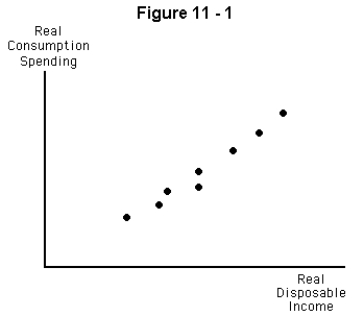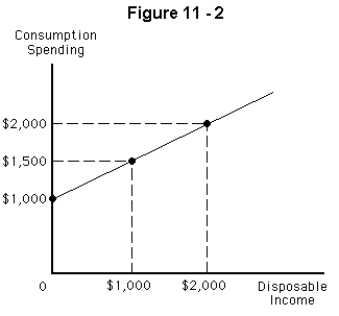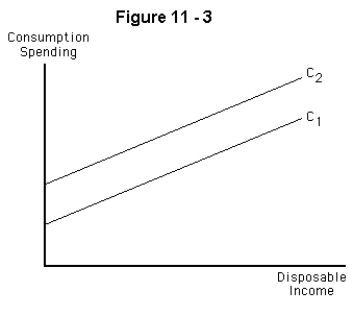Deck 11: The Short-run Macro Model
Question
Question
Question
Question
Question
Question
Question
Question
Question
Question
Question
Question
Question
Question
Question
Question
Question
Question
Question
Question
Question
Question
Question
Question
Question
Question
Question
Question
Question
Question
Question
Question
Question
Question
Question
Question
Question
Question
Question
Question
Question
Question
Question
Question
Question
Question
Question
Question
Question
Question
Question
Question
Question
Question
Question
Question
Question
Question
Question
Question
Question
Question
Question
Question
Question
Question
Question
Question
Question
Question
Question
Question
Question
Question
Question
Question
Question
Question
Question
Question

Unlock Deck
Sign up to unlock the cards in this deck!
Unlock Deck
Unlock Deck
1/210
Play
Full screen (f)
Deck 11: The Short-run Macro Model
1
The short-run macro model
A) relies on the market-clearing assumption
B) is used primarily for long-run analysis
C) is used primarily for short-run analysis
D) focuses on the supply of and demand for resources
E) focuses on fluctuations in the financial markets to explain fluctuations in real GDP
A) relies on the market-clearing assumption
B) is used primarily for long-run analysis
C) is used primarily for short-run analysis
D) focuses on the supply of and demand for resources
E) focuses on fluctuations in the financial markets to explain fluctuations in real GDP
is used primarily for short-run analysis
2
The part of consumption that is determined by income is referred to as autonomous consumption.
False
3
The marginal propensity to consume tells us the intercept of the consumption function.
False
4
The vertical intercept of the consumption function measures autonomous consumption.It represents the combined impact on consumption spending of all factors other than disposable income.

Unlock Deck
Unlock for access to all 210 flashcards in this deck.
Unlock Deck
k this deck
5
In the short run,
A) spending determines income,but not the other way around
B) income determines spending,but not the other way around
C) spending determines the interest rate,but not the other way around
D) spending determines income,and income determines spending
E) spending determines the productivity,and productivity determines spending.
A) spending determines income,but not the other way around
B) income determines spending,but not the other way around
C) spending determines the interest rate,but not the other way around
D) spending determines income,and income determines spending
E) spending determines the productivity,and productivity determines spending.

Unlock Deck
Unlock for access to all 210 flashcards in this deck.
Unlock Deck
k this deck
6
Roughly what fraction of total spending is consumption spending?
A) One-half
B) One-eighth
C) Two-fifths
D) One-quarter
E) Two-thirds.
A) One-half
B) One-eighth
C) Two-fifths
D) One-quarter
E) Two-thirds.

Unlock Deck
Unlock for access to all 210 flashcards in this deck.
Unlock Deck
k this deck
7
Which of the following is the definition of wealth?
A) Real disposable income
B) The total value of assets
C) Real income
D) The value of liabilities minus the value of assets
E) The value of assets minus the value of outstanding liabilities.
A) Real disposable income
B) The total value of assets
C) Real income
D) The value of liabilities minus the value of assets
E) The value of assets minus the value of outstanding liabilities.

Unlock Deck
Unlock for access to all 210 flashcards in this deck.
Unlock Deck
k this deck
8
Which of the following would be most likely to increase consumption spending?
A) A higher interest rate
B) A drop in stock prices
C) A reduction in consumer credit card debt
D) The expectation of lower future prices
E) An increase in the income tax rate.
A) A higher interest rate
B) A drop in stock prices
C) A reduction in consumer credit card debt
D) The expectation of lower future prices
E) An increase in the income tax rate.

Unlock Deck
Unlock for access to all 210 flashcards in this deck.
Unlock Deck
k this deck
9
The largest component of aggregate expenditure is
A) consumption spending
B) government purchases
C) net exports
D) capital expenditures
E) investment spending
A) consumption spending
B) government purchases
C) net exports
D) capital expenditures
E) investment spending

Unlock Deck
Unlock for access to all 210 flashcards in this deck.
Unlock Deck
k this deck
10
Real consumption spending is inversely related to
A) real disposable income
B) the amount of common stock owned
C) the amount of real estate owned
D) expectations of future income
E) the interest rate
A) real disposable income
B) the amount of common stock owned
C) the amount of real estate owned
D) expectations of future income
E) the interest rate

Unlock Deck
Unlock for access to all 210 flashcards in this deck.
Unlock Deck
k this deck
11
In the short run,
A) spending depends on income and income depends on spending
B) spending depends on income,but income does not depend on spending
C) income depends on spending,but spending does not depend on income
D) spending and income are independent of one another
E) spending is the only determinant of how much income an economy will produce
A) spending depends on income and income depends on spending
B) spending depends on income,but income does not depend on spending
C) income depends on spending,but spending does not depend on income
D) spending and income are independent of one another
E) spending is the only determinant of how much income an economy will produce

Unlock Deck
Unlock for access to all 210 flashcards in this deck.
Unlock Deck
k this deck
12
Everything else being equal,a higher interest rate
A) increases consumption spending as people face increasing debt
B) reduces consumption spending as people have a greater incentive to save
C) does not change consumption spending because consumption is only affected by income
D) does not change total consumption spending,but does change who does the spending
E) reduces both consumption spending and saving as people face increased debt.
A) increases consumption spending as people face increasing debt
B) reduces consumption spending as people have a greater incentive to save
C) does not change consumption spending because consumption is only affected by income
D) does not change total consumption spending,but does change who does the spending
E) reduces both consumption spending and saving as people face increased debt.

Unlock Deck
Unlock for access to all 210 flashcards in this deck.
Unlock Deck
k this deck
13
Disposable income is best defined as
A) income adjusted for inflation
B) nominal income
C) the income remaining after bills have been paid
D) income after taxes have been paid and transfers received
E) income paid in dollars that are worthless
A) income adjusted for inflation
B) nominal income
C) the income remaining after bills have been paid
D) income after taxes have been paid and transfers received
E) income paid in dollars that are worthless

Unlock Deck
Unlock for access to all 210 flashcards in this deck.
Unlock Deck
k this deck
14
The most important factor that influences total spending is
A) the interest rate
B) real wealth
C) expectations regarding future income
D) the income tax rate
E) real disposable income
A) the interest rate
B) real wealth
C) expectations regarding future income
D) the income tax rate
E) real disposable income

Unlock Deck
Unlock for access to all 210 flashcards in this deck.
Unlock Deck
k this deck
15
The focus of the short-run macro model is on the role of
A) spending in explaining economic fluctuations
B) labor in explaining economic fluctuations
C) financial markets in explaining economic fluctuations
D) output in explaining economic fluctuations
E) resources in explaining economic fluctuations.
A) spending in explaining economic fluctuations
B) labor in explaining economic fluctuations
C) financial markets in explaining economic fluctuations
D) output in explaining economic fluctuations
E) resources in explaining economic fluctuations.

Unlock Deck
Unlock for access to all 210 flashcards in this deck.
Unlock Deck
k this deck
16
The marginal propensity to consume is greater than zero but less than one.

Unlock Deck
Unlock for access to all 210 flashcards in this deck.
Unlock Deck
k this deck
17
The short-run macro model is used most often to determine changes in
A) nominal output
B) net output
C) gross output
D) financial output
E) real output.
A) nominal output
B) net output
C) gross output
D) financial output
E) real output.

Unlock Deck
Unlock for access to all 210 flashcards in this deck.
Unlock Deck
k this deck
18
Which of the following would unambiguously increase consumption spending?
A) an increase in real disposable income coupled with a decrease in real wealth
B) an increase in real wealth coupled with more pessimistic expectations regarding future income
C) a decrease in real disposable income coupled with a decrease in the interest rate
D) a decrease in the interest rate coupled with an increase in real wealth
E) increased pessimism regarding future income coupled with an increase in the interest rate
A) an increase in real disposable income coupled with a decrease in real wealth
B) an increase in real wealth coupled with more pessimistic expectations regarding future income
C) a decrease in real disposable income coupled with a decrease in the interest rate
D) a decrease in the interest rate coupled with an increase in real wealth
E) increased pessimism regarding future income coupled with an increase in the interest rate

Unlock Deck
Unlock for access to all 210 flashcards in this deck.
Unlock Deck
k this deck
19
Which of the following describes the relationship among income,disposable income,taxes,and transfer payments?
A) Taxes plus transfers equal income plus disposable income
B) Disposable income equals income divided by the sum of taxes and transfers
C) Disposable income equals income minus taxes plus transfers
D) Disposable income equals income plus taxes plus transfers
E) Taxes plus transfers equal disposable income minus income.
A) Taxes plus transfers equal income plus disposable income
B) Disposable income equals income divided by the sum of taxes and transfers
C) Disposable income equals income minus taxes plus transfers
D) Disposable income equals income plus taxes plus transfers
E) Taxes plus transfers equal disposable income minus income.

Unlock Deck
Unlock for access to all 210 flashcards in this deck.
Unlock Deck
k this deck
20
The largest component of aggregate expenditure is
A) consumption spending
B) investment spending
C) government purchases
D) net exports
E) a virtual tie between consumption spending and government purchases
A) consumption spending
B) investment spending
C) government purchases
D) net exports
E) a virtual tie between consumption spending and government purchases

Unlock Deck
Unlock for access to all 210 flashcards in this deck.
Unlock Deck
k this deck
21
Use the table below to find the marginal propensity to consume.

A) the marginal propensity to consume cannot be determined from the information given
B) 0.4
C) 0.5
D) 0.6
E) 0.8

A) the marginal propensity to consume cannot be determined from the information given
B) 0.4
C) 0.5
D) 0.6
E) 0.8

Unlock Deck
Unlock for access to all 210 flashcards in this deck.
Unlock Deck
k this deck
22
If the marginal propensity to consume is 0.5 and disposable income increases by $10,000,by how much will consumption spending increase?
A) $10,000
B) $500
C) $50
D) $5,000
E) $9,524
A) $10,000
B) $500
C) $50
D) $5,000
E) $9,524

Unlock Deck
Unlock for access to all 210 flashcards in this deck.
Unlock Deck
k this deck
23
Use the table below to find the marginal propensity to save.

A) 0
B) 0.25
C) 0.5
D) 0.75
E) 0.80

A) 0
B) 0.25
C) 0.5
D) 0.75
E) 0.80

Unlock Deck
Unlock for access to all 210 flashcards in this deck.
Unlock Deck
k this deck
24
The marginal propensity to consume (MPC)is typically
A) less than zero or greater than 1.0
B) equal to zero
C) equal to 1.0
D) between -1.0 and 1.0
E) between zero and 1.0
A) less than zero or greater than 1.0
B) equal to zero
C) equal to 1.0
D) between -1.0 and 1.0
E) between zero and 1.0

Unlock Deck
Unlock for access to all 210 flashcards in this deck.
Unlock Deck
k this deck
25
The consumption function shows the relationship between real consumption spending and
A) real wealth
B) the interest rate
C) expectations
D) real disposable income
E) debt
A) real wealth
B) the interest rate
C) expectations
D) real disposable income
E) debt

Unlock Deck
Unlock for access to all 210 flashcards in this deck.
Unlock Deck
k this deck
26
The marginal propensity to consume (MPC)is
A) the change in consumption divided by the change in disposable income
B) total consumption divided by total disposable income
C) the change in disposable income divided by the change in consumption
D) total disposable income divided by total consumption
E) the change in disposable income minus the change in consumption
A) the change in consumption divided by the change in disposable income
B) total consumption divided by total disposable income
C) the change in disposable income divided by the change in consumption
D) total disposable income divided by total consumption
E) the change in disposable income minus the change in consumption

Unlock Deck
Unlock for access to all 210 flashcards in this deck.
Unlock Deck
k this deck
27
If the marginal propensity to consume is 0.5 and disposable income decreases by $10,000,by how much will consumption spending decrease?
A) $10,000
B) $500
C) $50
D) $5,000
E) $9,524
A) $10,000
B) $500
C) $50
D) $5,000
E) $9,524

Unlock Deck
Unlock for access to all 210 flashcards in this deck.
Unlock Deck
k this deck
28
Use the table below to determine autonomous consumption spending.

A) $0
B) $100
C) $180
D) $200
E) $1,000

A) $0
B) $100
C) $180
D) $200
E) $1,000

Unlock Deck
Unlock for access to all 210 flashcards in this deck.
Unlock Deck
k this deck
29
Which of the following is a definition of the consumption function?
A) A functional relationship between real consumption spending and real disposable income
B) A functional relationship between real consumption spending and the interest rate
C) A functional relationship between real consumption spending and wealth
D) A functional relationship between real consumption spending and total spending
E) A functional relationship between real consumption spending and net taxes
A) A functional relationship between real consumption spending and real disposable income
B) A functional relationship between real consumption spending and the interest rate
C) A functional relationship between real consumption spending and wealth
D) A functional relationship between real consumption spending and total spending
E) A functional relationship between real consumption spending and net taxes

Unlock Deck
Unlock for access to all 210 flashcards in this deck.
Unlock Deck
k this deck
30
Which of the following would not increase autonomous consumption spending?
A) Expectations of greater future income
B) A lower interest rate
C) Reduced consumer debt
D) Increased household wealth
E) Increased disposable income.
A) Expectations of greater future income
B) A lower interest rate
C) Reduced consumer debt
D) Increased household wealth
E) Increased disposable income.

Unlock Deck
Unlock for access to all 210 flashcards in this deck.
Unlock Deck
k this deck
31
Use the table below to determine the marginal propensity to consume (MPC).

A) 0.7
B) 0.8
C) 0.9
D) 1.0
E) 1.8.

A) 0.7
B) 0.8
C) 0.9
D) 1.0
E) 1.8.

Unlock Deck
Unlock for access to all 210 flashcards in this deck.
Unlock Deck
k this deck
32

Refer to Figure 11-1.The graph shows
A) a negative and relatively stable relationship between real consumption and real disposable income
B) a negative,but unstable,relationship between real consumption and real disposable income
C) a positive,but unstable,relationship between real consumption and real disposable income
D) a positive and relatively stable relationship between real consumption and real disposable income
E) no discernible relationship between real consumption and real disposable income

Unlock Deck
Unlock for access to all 210 flashcards in this deck.
Unlock Deck
k this deck
33
Which of the following is the definition of autonomous consumption spending?
A) The effect of a change in wealth on consumption spending
B) The part of consumption spending that is independent of disposable income
C) The impact of disposable income on consumption spending
D) The part of consumption spending that is independent of wealth
E) The horizontal intercept of the consumption function.
A) The effect of a change in wealth on consumption spending
B) The part of consumption spending that is independent of disposable income
C) The impact of disposable income on consumption spending
D) The part of consumption spending that is independent of wealth
E) The horizontal intercept of the consumption function.

Unlock Deck
Unlock for access to all 210 flashcards in this deck.
Unlock Deck
k this deck
34
Use the table below to determine the marginal propensity to save (MPS).

A) 0
B) 0.1
C) 0.2
D) 0.5
E) 1.0

A) 0
B) 0.1
C) 0.2
D) 0.5
E) 1.0

Unlock Deck
Unlock for access to all 210 flashcards in this deck.
Unlock Deck
k this deck
35
Which of the following would lead to a decrease in autonomous consumption spending?
A) a decrease in disposable income
B) an increase in disposable income
C) an increase in the interest rate
D) more optimistic expectations about future income
E) an increase in wealth
A) a decrease in disposable income
B) an increase in disposable income
C) an increase in the interest rate
D) more optimistic expectations about future income
E) an increase in wealth

Unlock Deck
Unlock for access to all 210 flashcards in this deck.
Unlock Deck
k this deck
36

Refer to Figure 11-2.Use the graph to determine the marginal propensity to consume.
A) 0.50
B) 0.60
C) 0.75
D) 0.80
E) 0.90

Unlock Deck
Unlock for access to all 210 flashcards in this deck.
Unlock Deck
k this deck
37
Use the table below to find the marginal propensity to consume.

A) 0.50
B) 0.60
C) 0.65
D) 0.75
E) 0.80

A) 0.50
B) 0.60
C) 0.65
D) 0.75
E) 0.80

Unlock Deck
Unlock for access to all 210 flashcards in this deck.
Unlock Deck
k this deck
38
Which of the following statements is most accurate?
A) Most of the variation in consumption spending can be explained by changes in the interest rate.
B) Most of the variation in consumption spending can be explained by changes in disposable income.
C) Most of the variation in consumption spending can be explained by changes in wealth.
D) Most of the variation in consumption spending can be explained by changes in debt.
E) There is no single factor that explains much of the variation in consumption spending.
A) Most of the variation in consumption spending can be explained by changes in the interest rate.
B) Most of the variation in consumption spending can be explained by changes in disposable income.
C) Most of the variation in consumption spending can be explained by changes in wealth.
D) Most of the variation in consumption spending can be explained by changes in debt.
E) There is no single factor that explains much of the variation in consumption spending.

Unlock Deck
Unlock for access to all 210 flashcards in this deck.
Unlock Deck
k this deck
39
The consumption function
A) illustrates the relationship between real disposable income and real consumption spending
B) illustrates the relationship between the price level and real consumption spending
C) is the relationship between productivity and real consumption spending
D) shows how real consumption increases when real disposable income decreases
E) illustrates the relationship between real consumption spending and employment
A) illustrates the relationship between real disposable income and real consumption spending
B) illustrates the relationship between the price level and real consumption spending
C) is the relationship between productivity and real consumption spending
D) shows how real consumption increases when real disposable income decreases
E) illustrates the relationship between real consumption spending and employment

Unlock Deck
Unlock for access to all 210 flashcards in this deck.
Unlock Deck
k this deck
40
If the marginal propensity to consume is 0.75,net taxes are fixed at $2,000 and real income rises by $12,000,by how much will real consumption spending increase?
A) $9,000
B) $8,000
C) $7,500
D) $7,000
E) $10,000
A) $9,000
B) $8,000
C) $7,500
D) $7,000
E) $10,000

Unlock Deck
Unlock for access to all 210 flashcards in this deck.
Unlock Deck
k this deck
41
If real disposable income increased by $10,000 and real consumption spending increased by $7,500,what is the marginal propensity to consume (MPC)?
A) 0.25
B) 1.0
C) 0.75
D) 1.75
E) 1.25
A) 0.25
B) 1.0
C) 0.75
D) 1.75
E) 1.25

Unlock Deck
Unlock for access to all 210 flashcards in this deck.
Unlock Deck
k this deck
42
If we know that the slope of the consumption function is 0.6,then we know that if real disposable income increased by $1,000 billion,real consumption spending would
A) increase by $60 billion
B) increase by $1,000 billion
C) increase by $600 billion
D) increase by $6,000 billion
E) decrease by $6 billion
A) increase by $60 billion
B) increase by $1,000 billion
C) increase by $600 billion
D) increase by $6,000 billion
E) decrease by $6 billion

Unlock Deck
Unlock for access to all 210 flashcards in this deck.
Unlock Deck
k this deck
43
If expectations of future income become more optimistic,which of the following would occur?
A) Nothing would occur.
B) The consumption-income line would shift downward.
C) The consumption-income line would shift upward.
D) There would be an rightward movement along the consumption-income line.
E) There would be a leftward movement along the consumption-income line.
A) Nothing would occur.
B) The consumption-income line would shift downward.
C) The consumption-income line would shift upward.
D) There would be an rightward movement along the consumption-income line.
E) There would be a leftward movement along the consumption-income line.

Unlock Deck
Unlock for access to all 210 flashcards in this deck.
Unlock Deck
k this deck
44
If real consumption spending increases by $400 billion each time real disposable income rises by $1,000 billion,the marginal propensity to consume is
A) 40
B) 4
C) 0.4
D) 0.04
E) 0.004
A) 40
B) 4
C) 0.4
D) 0.04
E) 0.004

Unlock Deck
Unlock for access to all 210 flashcards in this deck.
Unlock Deck
k this deck
45
If net taxes were lowered from $5,000 to $1,000,the marginal propensity to consume is 0.75,and autonomous consumption spending is $10,000,by how much would consumption increase?
A) $3,000
B) $1,250
C) $7,500
D) $3,750
E) $750
A) $3,000
B) $1,250
C) $7,500
D) $3,750
E) $750

Unlock Deck
Unlock for access to all 210 flashcards in this deck.
Unlock Deck
k this deck
46
What are the marginal propensity to consume and level of autonomous consumption spending for a consumption function of the following form: C = 1,200 + 0.5DI?
A) The marginal propensity to consume is 0.5;autonomous consumption spending is $0.50.
B) The marginal propensity to consume is 0.5;autonomous consumption spending is $1,200.
C) The marginal propensity to consume is 1,200;autonomous consumption spending is $0.50.
D) The marginal propensity to consume is 1,200;autonomous consumption spending is $600.
E) There is insufficient information to answer this.
A) The marginal propensity to consume is 0.5;autonomous consumption spending is $0.50.
B) The marginal propensity to consume is 0.5;autonomous consumption spending is $1,200.
C) The marginal propensity to consume is 1,200;autonomous consumption spending is $0.50.
D) The marginal propensity to consume is 1,200;autonomous consumption spending is $600.
E) There is insufficient information to answer this.

Unlock Deck
Unlock for access to all 210 flashcards in this deck.
Unlock Deck
k this deck
47
The marginal propensity to consume is always
A) a negative number
B) larger than 1.0
C) larger than 10
D) greater than zero and less than 0.5
E) greater than zero and less than 1.0
A) a negative number
B) larger than 1.0
C) larger than 10
D) greater than zero and less than 0.5
E) greater than zero and less than 1.0

Unlock Deck
Unlock for access to all 210 flashcards in this deck.
Unlock Deck
k this deck
48
If the marginal propensity to consume is 0.5,the income tax rate is 10%,and income rises by $20,000,by how much will consumption spending increase?
A) $15,000
B) $10,000
C) $5,000
D) $9,000
E) $1,000
A) $15,000
B) $10,000
C) $5,000
D) $9,000
E) $1,000

Unlock Deck
Unlock for access to all 210 flashcards in this deck.
Unlock Deck
k this deck
49
If net taxes decrease,which of the following would occur?
A) Disposable income decreases,consumption at any income level increases,and the consumption-income line shifts upward.
B) Disposable income increases,consumption at any income level increases,and the consumption-income line shifts downward.
C) Disposable income increases,consumption at any income level increases,and the consumption-income line shifts upward.
D) Disposable income decreases,consumption at any income level decreases,and the consumption-income line shifts downward.
E) Disposable income increases,consumption at any income level decreases,and the consumption-income line shifts downward.
A) Disposable income decreases,consumption at any income level increases,and the consumption-income line shifts upward.
B) Disposable income increases,consumption at any income level increases,and the consumption-income line shifts downward.
C) Disposable income increases,consumption at any income level increases,and the consumption-income line shifts upward.
D) Disposable income decreases,consumption at any income level decreases,and the consumption-income line shifts downward.
E) Disposable income increases,consumption at any income level decreases,and the consumption-income line shifts downward.

Unlock Deck
Unlock for access to all 210 flashcards in this deck.
Unlock Deck
k this deck
50
If the interest rate increased,which of the following would occur?
A) Nothing would occur.
B) The consumption-income line would shift downward.
C) The consumption-income line would shifts upward.
D) There would be an rightward movement along the consumption-income line.
E) There would be a leftward movement along the consumption-income line.
A) Nothing would occur.
B) The consumption-income line would shift downward.
C) The consumption-income line would shifts upward.
D) There would be an rightward movement along the consumption-income line.
E) There would be a leftward movement along the consumption-income line.

Unlock Deck
Unlock for access to all 210 flashcards in this deck.
Unlock Deck
k this deck
51
An upward shift of the consumption function could be caused by a(n)
A) increase in the interest rate
B) decrease in the interest rate
C) decrease in wealth
D) increase in the autonomous production
E) increase in disposable income
A) increase in the interest rate
B) decrease in the interest rate
C) decrease in wealth
D) increase in the autonomous production
E) increase in disposable income

Unlock Deck
Unlock for access to all 210 flashcards in this deck.
Unlock Deck
k this deck
52
At each level of income,net taxes reduce disposable income,thereby reducing consumption spending.

Unlock Deck
Unlock for access to all 210 flashcards in this deck.
Unlock Deck
k this deck
53
A movement along the consumption-function line would most likely be caused by a(n)
A) increase in net taxes
B) decrease in net taxes
C) increase in income
D) decrease in productivity
E) change in autonomous consumption
A) increase in net taxes
B) decrease in net taxes
C) increase in income
D) decrease in productivity
E) change in autonomous consumption

Unlock Deck
Unlock for access to all 210 flashcards in this deck.
Unlock Deck
k this deck
54

Refer to Figure 11-3.Which of the following could explain the shift from C₁ to C₂?
A) An increase in disposable income
B) An increase in net taxes that increases the marginal propensity to consume
C) A decrease in net taxes that increases the marginal propensity to consume
D) An increase in net taxes that increases autonomous consumption spending
E) A decrease in net taxes that increases autonomous consumption spending.

Unlock Deck
Unlock for access to all 210 flashcards in this deck.
Unlock Deck
k this deck
55
The slope of the consumption function can be determined by dividing the change in
A) real consumption spending by the change in real disposable income
B) nominal spending by the change in nominal disposable income
C) real disposable income by the change in real consumption spending
D) nominal disposable income by the change in nominal consumption spending
E) total consumption spending by the change in autonomous consumption spending
A) real consumption spending by the change in real disposable income
B) nominal spending by the change in nominal disposable income
C) real disposable income by the change in real consumption spending
D) nominal disposable income by the change in nominal consumption spending
E) total consumption spending by the change in autonomous consumption spending

Unlock Deck
Unlock for access to all 210 flashcards in this deck.
Unlock Deck
k this deck
56
If net taxes decrease by $500 billion,both household disposable income and consumption spending will increase by $500 billion.

Unlock Deck
Unlock for access to all 210 flashcards in this deck.
Unlock Deck
k this deck
57
Use the table below to determine the impact on consumption spending of a $100 increase in net taxes.

A) Consumption will decrease by $80.
B) Consumption will increase by $80.
C) The marginal propensity to consume will increase to .91.
D) The marginal propensity to consume will decrease to .73.
E) The change in net taxes will not change consumption.

A) Consumption will decrease by $80.
B) Consumption will increase by $80.
C) The marginal propensity to consume will increase to .91.
D) The marginal propensity to consume will decrease to .73.
E) The change in net taxes will not change consumption.

Unlock Deck
Unlock for access to all 210 flashcards in this deck.
Unlock Deck
k this deck
58
Which of the following is not another way of describing the marginal propensity to consume?
A) MPC
B) The slope of the consumption function
C) The change in real consumption spending divided by the change in real disposable income
D) The amount by which real consumption spending rises when real disposable income increases by one dollar
E) Autonomous consumption spending.
A) MPC
B) The slope of the consumption function
C) The change in real consumption spending divided by the change in real disposable income
D) The amount by which real consumption spending rises when real disposable income increases by one dollar
E) Autonomous consumption spending.

Unlock Deck
Unlock for access to all 210 flashcards in this deck.
Unlock Deck
k this deck
59
Which of the following statements is true?
A) When a change in income causes consumption to change,the consumption-income line shifts;however,when anything besides income changes,we move along the line.
B) When a change in income causes consumption to change,we move along the consumption-income line;however,when anything besides income changes,the line shifts.
C) When income or anything else affecting consumption changes,we move along the consumption-income line.
D) When income or anything else affecting consumption changes,the consumption-income line shifts.
E) There is no way to determine,without more information,whether a change in income or anything else will shift the consumption line or cause movement along the consumption-income line.
A) When a change in income causes consumption to change,the consumption-income line shifts;however,when anything besides income changes,we move along the line.
B) When a change in income causes consumption to change,we move along the consumption-income line;however,when anything besides income changes,the line shifts.
C) When income or anything else affecting consumption changes,we move along the consumption-income line.
D) When income or anything else affecting consumption changes,the consumption-income line shifts.
E) There is no way to determine,without more information,whether a change in income or anything else will shift the consumption line or cause movement along the consumption-income line.

Unlock Deck
Unlock for access to all 210 flashcards in this deck.
Unlock Deck
k this deck
60
Which of the following would lead to an upward shift of the consumption-income line?
A) A decrease in income
B) A decrease in population
C) An increase in income
D) An increase in wealth
E) An increase in the interest rate
A) A decrease in income
B) A decrease in population
C) An increase in income
D) An increase in wealth
E) An increase in the interest rate

Unlock Deck
Unlock for access to all 210 flashcards in this deck.
Unlock Deck
k this deck
61
Which of the following changes would probably not lead to an increase in aggregate expenditure?
A) an increase in aggregate wage income
B) an increased mood of optimism about the nation's economic prospects
C) an increase in the value of corporate stocks
D) a decrease in the income tax rate
E) an increase in the interest rate
A) an increase in aggregate wage income
B) an increased mood of optimism about the nation's economic prospects
C) an increase in the value of corporate stocks
D) a decrease in the income tax rate
E) an increase in the interest rate

Unlock Deck
Unlock for access to all 210 flashcards in this deck.
Unlock Deck
k this deck
62
In the short-run macro model,what is the relationship between income and government purchases?
A) It is positive and stable.
B) It is positive but unstable.
C) It is negative and stable.
D) It is negative but unstable.
E) There is no relationship between the two variables.
A) It is positive and stable.
B) It is positive but unstable.
C) It is negative and stable.
D) It is negative but unstable.
E) There is no relationship between the two variables.

Unlock Deck
Unlock for access to all 210 flashcards in this deck.
Unlock Deck
k this deck
63
A rise in aggregate expenditure is always
A) smaller than the rise in income that causes it
B) larger than the rise in income that causes it
C) the same as the rise in income that causes it
D) smaller than the increase in consumer spending that causes it
E) smaller than investment spending
A) smaller than the rise in income that causes it
B) larger than the rise in income that causes it
C) the same as the rise in income that causes it
D) smaller than the increase in consumer spending that causes it
E) smaller than investment spending

Unlock Deck
Unlock for access to all 210 flashcards in this deck.
Unlock Deck
k this deck
64
Investment,as defined for calculating GDP,consists of only two components: business spending on plant and equipment and unsold inventories.

Unlock Deck
Unlock for access to all 210 flashcards in this deck.
Unlock Deck
k this deck
65
Net exports
A) are equal to total exports minus total imports
B) are always positive because total imports exceed total exports
C) are always negative because total exports exceed total imports
D) always exceed total exports
E) include goods produced and sold abroad
A) are equal to total exports minus total imports
B) are always positive because total imports exceed total exports
C) are always negative because total exports exceed total imports
D) always exceed total exports
E) include goods produced and sold abroad

Unlock Deck
Unlock for access to all 210 flashcards in this deck.
Unlock Deck
k this deck
66
Net exports
A) are the second largest component of total spending
B) are already included in measures on consumption,investment,and government spending
C) are a source of total spending on U.S.output
D) are always positive;i.e. ,total exports always exceed total imports
E) are always positive;i.e. ,total imports always exceed total exports
A) are the second largest component of total spending
B) are already included in measures on consumption,investment,and government spending
C) are a source of total spending on U.S.output
D) are always positive;i.e. ,total exports always exceed total imports
E) are always positive;i.e. ,total imports always exceed total exports

Unlock Deck
Unlock for access to all 210 flashcards in this deck.
Unlock Deck
k this deck
67
In the short-run macro model,adjustment toward equilibrium is facilitated by price changes.

Unlock Deck
Unlock for access to all 210 flashcards in this deck.
Unlock Deck
k this deck
68
In calculating total spending,after adding together Consumption,Investment,and Government Purchases,we must
A) add imports and subtract exports
B) add exports and subtract imports
C) compute net consumption and net investment by subtracting products produced abroad
D) compute net consumption and net investment by adding products produced abroad
E) compute net consumption and net investment by add products consumed abroad
A) add imports and subtract exports
B) add exports and subtract imports
C) compute net consumption and net investment by subtracting products produced abroad
D) compute net consumption and net investment by adding products produced abroad
E) compute net consumption and net investment by add products consumed abroad

Unlock Deck
Unlock for access to all 210 flashcards in this deck.
Unlock Deck
k this deck
69
In the short-run macro model,what is the relationship between income and investment spending?
A) It is positive and stable.
B) It is positive but unstable.
C) It is negative and stable.
D) It is negative but unstable.
E) There is no relationship between the two variables.
A) It is positive and stable.
B) It is positive but unstable.
C) It is negative and stable.
D) It is negative but unstable.
E) There is no relationship between the two variables.

Unlock Deck
Unlock for access to all 210 flashcards in this deck.
Unlock Deck
k this deck
70
Which of the following would not cause the consumption-income line to shift upward?
A) An increase in income
B) An increase in autonomous consumption
C) A decrease in the interest rate
D) Greater optimism about economic conditions
E) An increase in household wealth
A) An increase in income
B) An increase in autonomous consumption
C) A decrease in the interest rate
D) Greater optimism about economic conditions
E) An increase in household wealth

Unlock Deck
Unlock for access to all 210 flashcards in this deck.
Unlock Deck
k this deck
71
Which of the following components of spending is not treated as a given value in the short-run macro model?
A) Net exports
B) Imports
C) Investment spending
D) Consumption spending
E) Government spending
A) Net exports
B) Imports
C) Investment spending
D) Consumption spending
E) Government spending

Unlock Deck
Unlock for access to all 210 flashcards in this deck.
Unlock Deck
k this deck
72
If income increases by $10,000,government purchases are fixed at $1,000,investment spending is fixed at $2,000,net exports are fixed at $500,and the marginal propensity to consume is 0.70,by how much does aggregate expenditure increase?
A) $700
B) $2,000
C) $7,000
D) $1,000
E) $1,400
A) $700
B) $2,000
C) $7,000
D) $1,000
E) $1,400

Unlock Deck
Unlock for access to all 210 flashcards in this deck.
Unlock Deck
k this deck
73
If disposable income decreased,which of the following changes in the consumption-function line would occur?
A) A rightward movement along the line
B) A leftward movement along the line
C) The entire line would shift upward
D) The entire line would shift downward
E) The entire line would shift downward and there would be a rightward movement along the new line
A) A rightward movement along the line
B) A leftward movement along the line
C) The entire line would shift upward
D) The entire line would shift downward
E) The entire line would shift downward and there would be a rightward movement along the new line

Unlock Deck
Unlock for access to all 210 flashcards in this deck.
Unlock Deck
k this deck
74
Aggregate expenditure includes final spending by households,businesses,and government on final goods and services.

Unlock Deck
Unlock for access to all 210 flashcards in this deck.
Unlock Deck
k this deck
75
If Americans became more pessimistic about the economy,what would happen to the consumption-income line?
A) A rightward movement along the line
B) A leftward movement along the line
C) The entire line would shift upward
D) The entire line would shift downward
E) The entire line would shift downward and there would be a rightward movement along the new line
A) A rightward movement along the line
B) A leftward movement along the line
C) The entire line would shift upward
D) The entire line would shift downward
E) The entire line would shift downward and there would be a rightward movement along the new line

Unlock Deck
Unlock for access to all 210 flashcards in this deck.
Unlock Deck
k this deck
76
If income increased by $20,000,investment spending is fixed at $5,000,government purchases are fixed at $10,000,net exports are fixed at $500,and aggregate expenditure increases by $15,000,what is the marginal propensity to consume (MPC)?
A) 0.25
B) 0.75
C) 0.33
D) 0.50
E) 0.70
A) 0.25
B) 0.75
C) 0.33
D) 0.50
E) 0.70

Unlock Deck
Unlock for access to all 210 flashcards in this deck.
Unlock Deck
k this deck
77
Government purchases
A) are only weakly related to aggregate income
B) include spending on goods and services plus transfer payments
C) are inversely related to aggregate income
D) are inversely related to the price level
E) are inversely related to the interest rate
A) are only weakly related to aggregate income
B) include spending on goods and services plus transfer payments
C) are inversely related to aggregate income
D) are inversely related to the price level
E) are inversely related to the interest rate

Unlock Deck
Unlock for access to all 210 flashcards in this deck.
Unlock Deck
k this deck
78
What is the difference between actual investment (as defined in GDP)and planned investment?
A) Planned investment does not include unplanned inventory changes;actual investment does.
B) There is no difference;they are the same.
C) Planned investment does not include depreciation;actual investment does.
D) Planned investment includes inventories;actual investment does not.
E) Planned investment includes depreciation;actual investment does not.
A) Planned investment does not include unplanned inventory changes;actual investment does.
B) There is no difference;they are the same.
C) Planned investment does not include depreciation;actual investment does.
D) Planned investment includes inventories;actual investment does not.
E) Planned investment includes depreciation;actual investment does not.

Unlock Deck
Unlock for access to all 210 flashcards in this deck.
Unlock Deck
k this deck
79
If aggregate expenditure exceeds GDP,we expect inventories to shrink and firms to increase production.

Unlock Deck
Unlock for access to all 210 flashcards in this deck.
Unlock Deck
k this deck
80
Aggregate expenditure is the sum of
A) all types of spending by households and firms
B) spending and savings by households
C) spending by households and governments on final goods and services
D) spending by households,government,firms,and foreigners on final goods and services
E) all spending and saving by households,firms,and governments
A) all types of spending by households and firms
B) spending and savings by households
C) spending by households and governments on final goods and services
D) spending by households,government,firms,and foreigners on final goods and services
E) all spending and saving by households,firms,and governments

Unlock Deck
Unlock for access to all 210 flashcards in this deck.
Unlock Deck
k this deck


